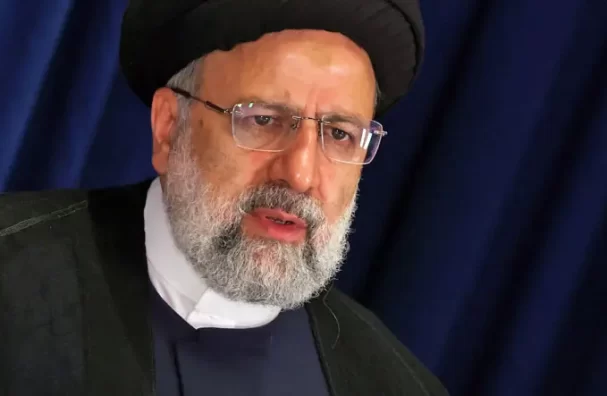
Iran’s President Ebrahim Raisi, in a recent statement, has issued a stark warning against Israel. If Israel dares to initiate even the “slightest incursion”, Iran would retaliate with a “colossal and severe” response. This piece aims to dissect Raisi’s words and decode the underlying significance in the current geopolitical scenario.
Raisi’s stern warning was delivered during an annual military parade, which, in a departure from tradition, was shifted to a military base in the northern outskirts of Tehran, away from its usual location in the southern fringes of the city. The reasons behind this shift remain undisclosed by Iranian authorities. The parade was not broadcast live on state TV, as has been the norm in previous years.
Raisi’s statement follows the aftermath of the recent assault by Iran on Israel. The Iranian forces launched a barrage of missiles and drones in reaction to an alleged Israeli attack on Iran’s embassy compound in Syria earlier this month, leading to the death of 12 people, including two senior Iranian military officials.
In response to Iran’s actions, Israel, with assistance from the United States, the United Kingdom, Jordan, and other nations, managed to successfully intercept almost all the incoming missiles and drones. However, the escalating tensions have put the region on high alert.
The recent events have sparked a surge in tensions in the region. The commencement of the latest Israel-Hamas conflict on October 7 has further aggravated the situation. Hamas and Islamic Jihad, two militant groups backed by Iran, initiated a cross-border attack resulting in numerous casualties in Israel and leading to the capture of several hostages.
Israel retaliated with a fierce offensive in Gaza, causing widespread destruction and a significant loss of life. The local health officials have reported a staggering number of deaths.
The escalating conflict has raised concerns globally. Janet Yellen, the US Treasury Secretary, warned that Iran’s actions could trigger global economic repercussions and hinted at the possibility of additional sanctions. As a safety measure, the University of Southern California cancelled a speech by a valedictorian who has publicly supported Palestinians.
The New York-based Human Rights Watch reported that Israeli forces either participated in or failed to prevent attacks on Palestinians in the occupied West Bank. These attacks resulted in the displacement of hundreds of people from several Bedouin communities last fall.
Raisi’s warning comes amidst this tense atmosphere. He stated that if Iran intended a larger attack, “nothing would remain from the Zionist regime”. His comments were reported by the official IRNA news agency.
The Israel-Iran conflict is not new. The two nations have been engaged in a covert war for many years. However, the recent incident marks the first direct military attack by Iran on Israel.
The United Nations has appealed for $2.8 billion to provide much-needed aid to 3 million Palestinians. Andrea De Domenico, the head of the UN humanitarian office for Gaza and the West Bank, emphasised that the prevention of an impending famine in Gaza requires more than just food – it necessitates the restoration of sanitation, water, and health facilities.
The Iraqi Prime Minister, Mohammed Shia al-Sudani, has urged calm among all parties during his recent talks with President Joe Biden. He highlighted Iraq’s delicate relationship with both the US and Iran and stressed Iraq’s autonomy in the conflict.
